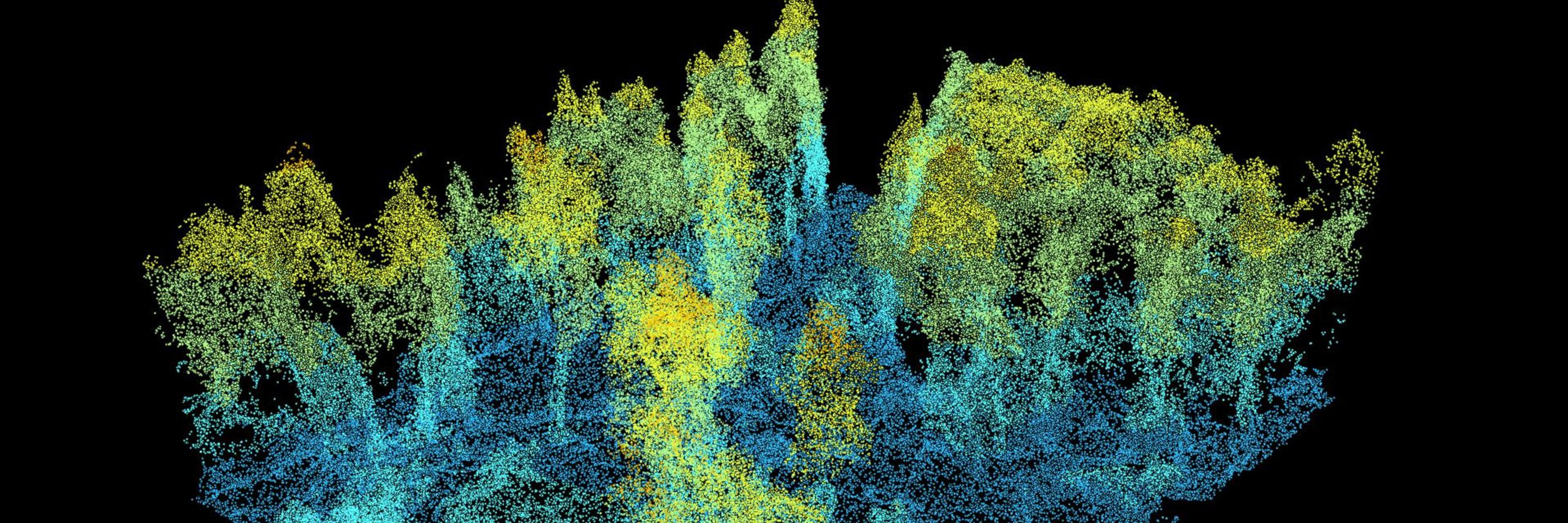
Loke von Schmalensee
@vonschmalensee.bsky.social
Postdoc under @dbergerbiol.bsky.social working on insect thermal evolution and macroecology at @animecol-uu.bsky.social. Also interested in many other things, like which wines are good, how to predict stuff, and what's truly compressible in the world
Pinned
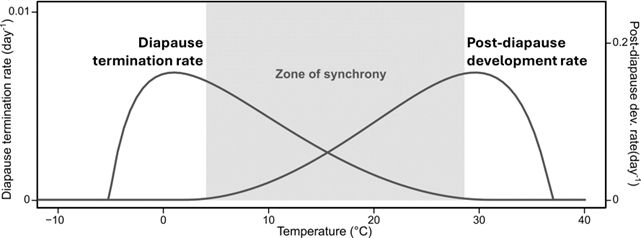
Quantifying temperature’s effect on #diapause #termination requires fitting #TPCs to binary biological data. In our new paper, out now in #PNAS, we show how to do this, revealing the sequential nature of diapause termination and post-diapause development.
doi.org/10.1073/pnas...
doi.org/10.1073/pnas...
Hi all!
I've been inactive here for a while (all that's going on in the world kind of saturated my bandwidth), so maybe the algorithm won't favor me.
But! I'm curious if anyone of you have been using/thinking about using explainable AI method (xAI) for identifying complex ecological patterns.
I've been inactive here for a while (all that's going on in the world kind of saturated my bandwidth), so maybe the algorithm won't favor me.
But! I'm curious if anyone of you have been using/thinking about using explainable AI method (xAI) for identifying complex ecological patterns.
November 7, 2025 at 9:55 AM
Hi all!
I've been inactive here for a while (all that's going on in the world kind of saturated my bandwidth), so maybe the algorithm won't favor me.
But! I'm curious if anyone of you have been using/thinking about using explainable AI method (xAI) for identifying complex ecological patterns.
I've been inactive here for a while (all that's going on in the world kind of saturated my bandwidth), so maybe the algorithm won't favor me.
But! I'm curious if anyone of you have been using/thinking about using explainable AI method (xAI) for identifying complex ecological patterns.
Environmental cues indicating abundant resources reduce the difference between inbred and non-inbred beetle lines in finding those resources, and thus the fitness gap. We argue that environmental predictability could be masking the effects of otherwise deleterious alleles via behavioral plasticity.
Behavioral plasticity can be a double-edged sword for genetic adaptation.
Have a look at our experimental demonstration published today in Proceedings of the Royal Society B: royalsocietypublishing.org/doi/full/10....
Have a look at our experimental demonstration published today in Proceedings of the Royal Society B: royalsocietypublishing.org/doi/full/10....

The reliability of environmental cues shape learning and selection against deleterious alleles in seed beetles | Proceedings of the Royal Society B: Biological Sciences
Behavioural plasticity can play a key role in evolution by either facilitating or
impeding genetic adaptation. The latter occurs when behaviours mitigate selection
pressures that otherwise would targe...
royalsocietypublishing.org
October 9, 2025 at 7:51 AM
Environmental cues indicating abundant resources reduce the difference between inbred and non-inbred beetle lines in finding those resources, and thus the fitness gap. We argue that environmental predictability could be masking the effects of otherwise deleterious alleles via behavioral plasticity.
Reposted by Loke von Schmalensee
I was corresponding with a scientist last week who was skeptical that a biased estimate could be better than an unbiased one. I cited the usual reasons. And here is Numberphile right on time with a new episode about Stein's paradox: www.youtube.com/watch?v=FUQw...

The Stein Paradox - Numberphile
YouTube video by Numberphile
www.youtube.com
July 5, 2025 at 9:32 AM
I was corresponding with a scientist last week who was skeptical that a biased estimate could be better than an unbiased one. I cited the usual reasons. And here is Numberphile right on time with a new episode about Stein's paradox: www.youtube.com/watch?v=FUQw...
Reposted by Loke von Schmalensee
Finally out: Predicting adaptation to climate warming www.nature.com/articles/s41...
We find that there are many genomic routes to heat-adaptation, but this can also make genomic data of limited value for prediction. A tour de force by @denovorego.bsky.social , with @stelkens.bsky.social.
We find that there are many genomic routes to heat-adaptation, but this can also make genomic data of limited value for prediction. A tour de force by @denovorego.bsky.social , with @stelkens.bsky.social.
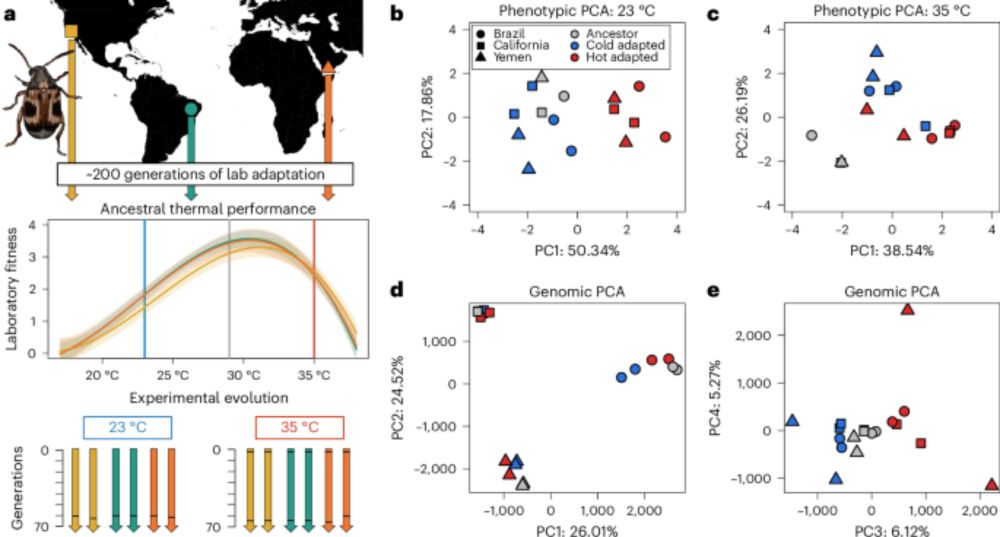
Repeatability of evolution and genomic predictions of temperature adaptation in seed beetles - Nature Ecology & Evolution
The authors compare genomic and phenotypic changes between genetic backgrounds of seed beetles evolved at hot or cold temperatures. Despite phenotypic changes being more rapid and predictable at hot t...
www.nature.com
May 16, 2025 at 12:16 PM
Finally out: Predicting adaptation to climate warming www.nature.com/articles/s41...
We find that there are many genomic routes to heat-adaptation, but this can also make genomic data of limited value for prediction. A tour de force by @denovorego.bsky.social , with @stelkens.bsky.social.
We find that there are many genomic routes to heat-adaptation, but this can also make genomic data of limited value for prediction. A tour de force by @denovorego.bsky.social , with @stelkens.bsky.social.
Reposted by Loke von Schmalensee
How do fish evolve to tolerate higher temperatures, and are there trade-offs? We explore these questions in our new paper
@natclimate.nature.com led by Anna Andreassen
@annahandreassen.bsky.social
www.nature.com/articles/s41...
🧪🐟🦑
@natclimate.nature.com led by Anna Andreassen
@annahandreassen.bsky.social
www.nature.com/articles/s41...
🧪🐟🦑
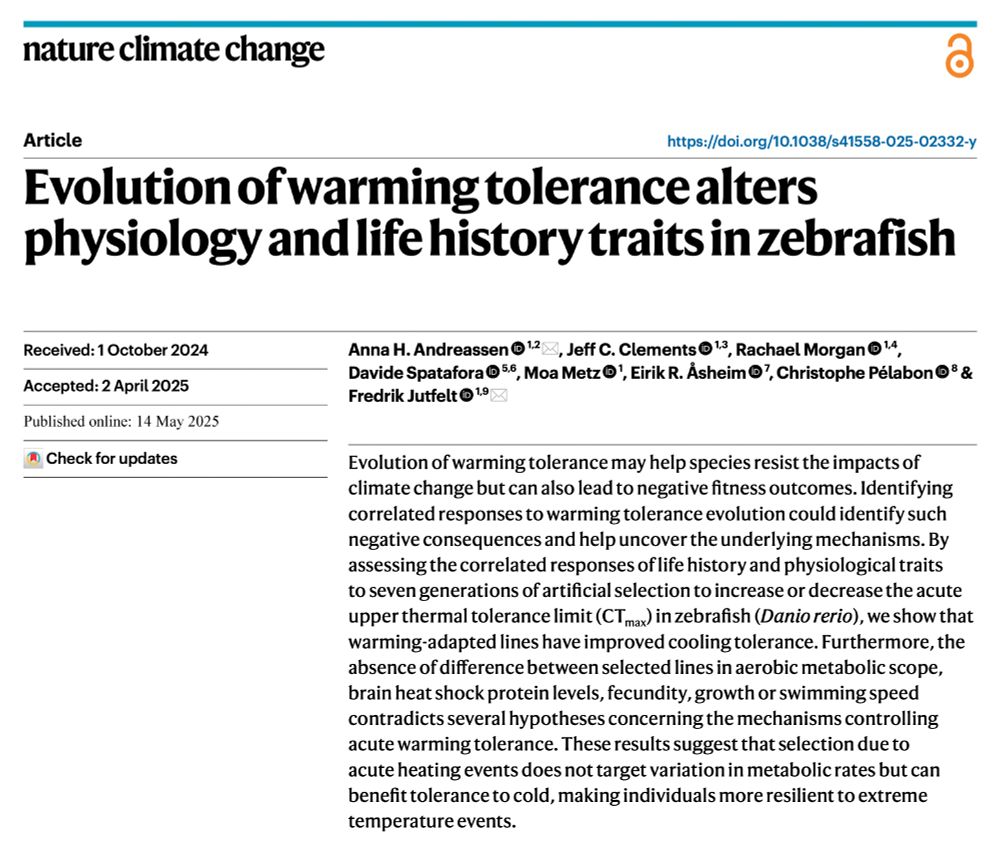
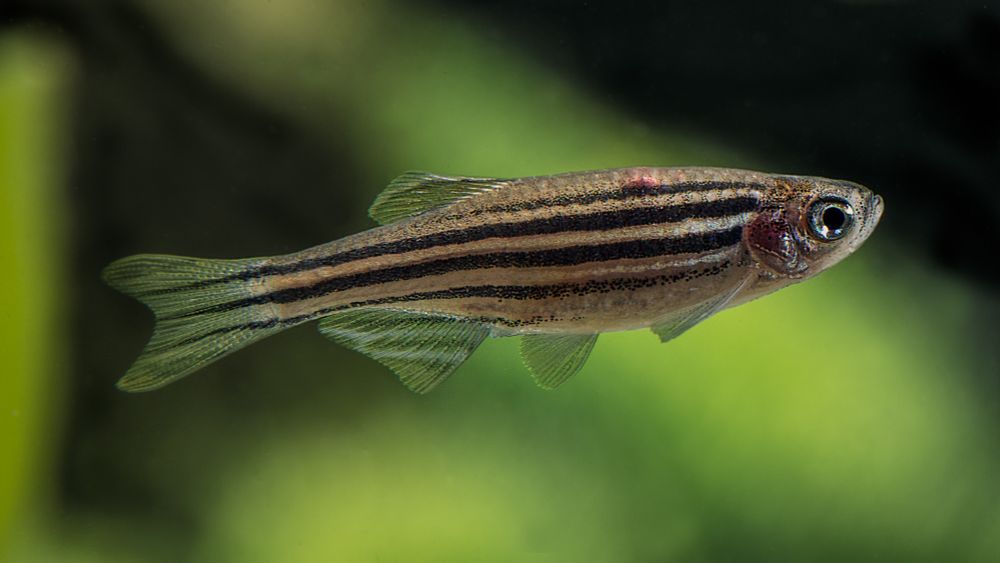
May 14, 2025 at 9:20 AM
How do fish evolve to tolerate higher temperatures, and are there trade-offs? We explore these questions in our new paper
@natclimate.nature.com led by Anna Andreassen
@annahandreassen.bsky.social
www.nature.com/articles/s41...
🧪🐟🦑
@natclimate.nature.com led by Anna Andreassen
@annahandreassen.bsky.social
www.nature.com/articles/s41...
🧪🐟🦑
Reposted by Loke von Schmalensee
Models of pest impact predict that climate warming will alter growth rates and distributions of insect pests.
🐞🌱🐞🌱🐞🌱🐞🌱🐞🌱🐞🌱🐞🌱
How do trait-specific evolutionary responses affect predictions?
Have a look at our new paper rdcu.be/d6G2u in @naturecomms.bsky.social to find out. Short summary below.
🐞🌱🐞🌱🐞🌱🐞🌱🐞🌱🐞🌱🐞🌱
How do trait-specific evolutionary responses affect predictions?
Have a look at our new paper rdcu.be/d6G2u in @naturecomms.bsky.social to find out. Short summary below.
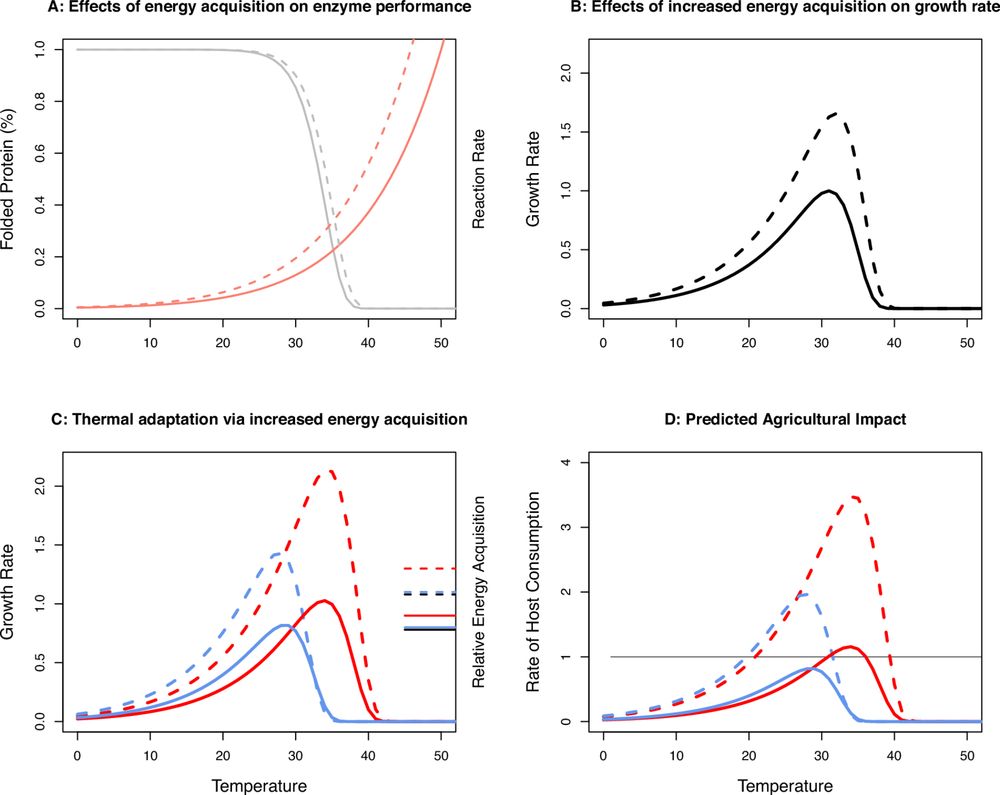
Life-history adaptation under climate warming magnifies the agricultural footprint of a cosmopolitan insect pest
Nature Communications - Current statistical projections of pest impact under climate change neglect the role of rapid genetic adaptation. Here the authors show that evolutionary responses in pest...
rdcu.be
January 21, 2025 at 4:14 PM
Models of pest impact predict that climate warming will alter growth rates and distributions of insect pests.
🐞🌱🐞🌱🐞🌱🐞🌱🐞🌱🐞🌱🐞🌱
How do trait-specific evolutionary responses affect predictions?
Have a look at our new paper rdcu.be/d6G2u in @naturecomms.bsky.social to find out. Short summary below.
🐞🌱🐞🌱🐞🌱🐞🌱🐞🌱🐞🌱🐞🌱
How do trait-specific evolutionary responses affect predictions?
Have a look at our new paper rdcu.be/d6G2u in @naturecomms.bsky.social to find out. Short summary below.
Reposted by Loke von Schmalensee
Quantifying temperature’s effect on #diapause #termination requires fitting #TPCs to binary biological data. In our new paper, out now in #PNAS, we show how to do this, revealing the sequential nature of diapause termination and post-diapause development.
doi.org/10.1073/pnas...
doi.org/10.1073/pnas...

October 2, 2024 at 10:18 AM
Quantifying temperature’s effect on #diapause #termination requires fitting #TPCs to binary biological data. In our new paper, out now in #PNAS, we show how to do this, revealing the sequential nature of diapause termination and post-diapause development.
doi.org/10.1073/pnas...
doi.org/10.1073/pnas...
Reposted by Loke von Schmalensee
The Global Ecology starter pack is now curated! ✨ and some slots are open 😊
Studying global biodiversity, ecosystem functioning, or conservation across terrestrial and marine realms ?
📚 Published in these fields? 👉 You are welcome to join ! just reply to be added.
go.bsky.app/V6tN4cv
🧪🌐🌍🦤🦑
Studying global biodiversity, ecosystem functioning, or conservation across terrestrial and marine realms ?
📚 Published in these fields? 👉 You are welcome to join ! just reply to be added.
go.bsky.app/V6tN4cv
🧪🌐🌍🦤🦑
December 11, 2024 at 1:33 PM
The Global Ecology starter pack is now curated! ✨ and some slots are open 😊
Studying global biodiversity, ecosystem functioning, or conservation across terrestrial and marine realms ?
📚 Published in these fields? 👉 You are welcome to join ! just reply to be added.
go.bsky.app/V6tN4cv
🧪🌐🌍🦤🦑
Studying global biodiversity, ecosystem functioning, or conservation across terrestrial and marine realms ?
📚 Published in these fields? 👉 You are welcome to join ! just reply to be added.
go.bsky.app/V6tN4cv
🧪🌐🌍🦤🦑
Combining some mechanistic knowledge and Occam's razor appears to me to be a very powerful tool for getting closer to the truth! Let me show an example that I believe is related to this, which I found while writing my last published paper. It's on the underlying temperature-dependence of diapause 🤓❄️
December 4, 2024 at 9:03 AM
Combining some mechanistic knowledge and Occam's razor appears to me to be a very powerful tool for getting closer to the truth! Let me show an example that I believe is related to this, which I found while writing my last published paper. It's on the underlying temperature-dependence of diapause 🤓❄️
Reposted by Loke von Schmalensee
Here is a starter pack for scientists and others interested in trait-based ecology and evolution. Still trying to find everyone here. Please let me know if you would like to be added to the list! go.bsky.app/PThMXeX 🧪🌎🌾
November 10, 2024 at 9:32 AM
Here is a starter pack for scientists and others interested in trait-based ecology and evolution. Still trying to find everyone here. Please let me know if you would like to be added to the list! go.bsky.app/PThMXeX 🧪🌎🌾
Reposted by Loke von Schmalensee
Changing the solid Earth's temperature is *really* hard.
Day-to-night temperature variations, what we're used to, stop being relevant at about half a meter depth--this is why animals burrow.
(Link for figs: geothermal-energy-journal.springeropen.com/articles/10.... )
Day-to-night temperature variations, what we're used to, stop being relevant at about half a meter depth--this is why animals burrow.
(Link for figs: geothermal-energy-journal.springeropen.com/articles/10.... )
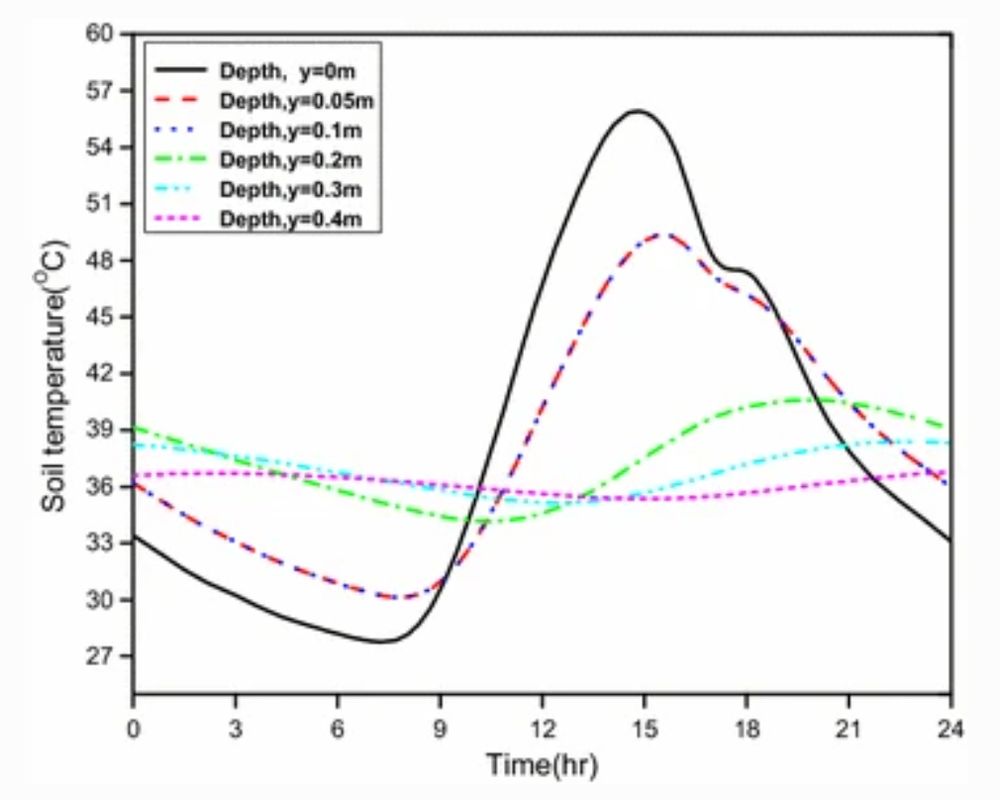
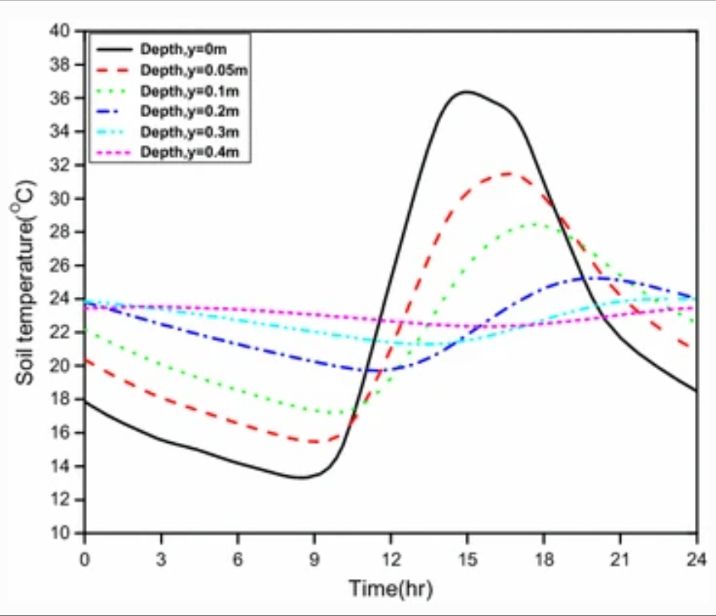
November 17, 2024 at 2:28 AM
Changing the solid Earth's temperature is *really* hard.
Day-to-night temperature variations, what we're used to, stop being relevant at about half a meter depth--this is why animals burrow.
(Link for figs: geothermal-energy-journal.springeropen.com/articles/10.... )
Day-to-night temperature variations, what we're used to, stop being relevant at about half a meter depth--this is why animals burrow.
(Link for figs: geothermal-energy-journal.springeropen.com/articles/10.... )
Reposted by Loke von Schmalensee
A starter pack of people working on thermal biology or metabolic theory. Presently a very short list, but I know y'all are out there - please tell me if you'd like to be added!
(Or if you'd like to be taken off)
go.bsky.app/nHLZbD
(Or if you'd like to be taken off)
go.bsky.app/nHLZbD
November 13, 2024 at 6:47 PM
A starter pack of people working on thermal biology or metabolic theory. Presently a very short list, but I know y'all are out there - please tell me if you'd like to be added!
(Or if you'd like to be taken off)
go.bsky.app/nHLZbD
(Or if you'd like to be taken off)
go.bsky.app/nHLZbD
Feels good to commit fully to migrating here. Anyone got any tips for how to best manage your account to find relevant stuff? For example, does anyone know of any good "feeds" for evolutionary ecology/macro ecology/thermal biology/etc.?
November 11, 2024 at 12:31 PM
Feels good to commit fully to migrating here. Anyone got any tips for how to best manage your account to find relevant stuff? For example, does anyone know of any good "feeds" for evolutionary ecology/macro ecology/thermal biology/etc.?
Quantifying temperature’s effect on #diapause #termination requires fitting #TPCs to binary biological data. In our new paper, out now in #PNAS, we show how to do this, revealing the sequential nature of diapause termination and post-diapause development.
doi.org/10.1073/pnas...
doi.org/10.1073/pnas...

October 2, 2024 at 10:18 AM
Quantifying temperature’s effect on #diapause #termination requires fitting #TPCs to binary biological data. In our new paper, out now in #PNAS, we show how to do this, revealing the sequential nature of diapause termination and post-diapause development.
doi.org/10.1073/pnas...
doi.org/10.1073/pnas...
In our latest paper, led by Isabelle Siemers and me, we demonstrate that four butterfly populations along a 750 km latitudinal cline display distinct local adaptation in their photoperiodic reaction norms, but /not/ in their thermal performance curves!
🦋🦋🦋
doi.org/10.1002/ecs2...
🦋🦋🦋
doi.org/10.1002/ecs2...

Predictable local adaptation in butterfly photoperiodism but not thermal performance along a latitudinal cline
<em>Ecosphere</em> is an open access journal publishing research in all areas of ecology, spanning multidisciplinary fields, from computer science to social sciences and eco-education.
doi.org
May 17, 2024 at 1:06 PM
In our latest paper, led by Isabelle Siemers and me, we demonstrate that four butterfly populations along a 750 km latitudinal cline display distinct local adaptation in their photoperiodic reaction norms, but /not/ in their thermal performance curves!
🦋🦋🦋
doi.org/10.1002/ecs2...
🦋🦋🦋
doi.org/10.1002/ecs2...
Glad to see this comprehensive microclimate perspective paper out! This is a great team effort spearheaded by
Julia Kemppinen and others! I'd recommend this paper to anyone looking for an overview of the current state of microclimate research in ecology.
doi.org/10.1111/geb....
Julia Kemppinen and others! I'd recommend this paper to anyone looking for an overview of the current state of microclimate research in ecology.
doi.org/10.1111/geb....
April 9, 2024 at 11:51 AM
Glad to see this comprehensive microclimate perspective paper out! This is a great team effort spearheaded by
Julia Kemppinen and others! I'd recommend this paper to anyone looking for an overview of the current state of microclimate research in ecology.
doi.org/10.1111/geb....
Julia Kemppinen and others! I'd recommend this paper to anyone looking for an overview of the current state of microclimate research in ecology.
doi.org/10.1111/geb....
Reposted by Loke von Schmalensee
New preprint on a wild Y chromosome introgression between 6 my divergent primate species!
Guenons are a diverse group of African primates that hybridized a lot in the past. In this study, we looked at patterns of Y introgression…
www.biorxiv.org/content/10.1...
Guenons are a diverse group of African primates that hybridized a lot in the past. In this study, we looked at patterns of Y introgression…
www.biorxiv.org/content/10.1...

Breaking the rule: An exceptional Y chromosome introgression between deeply divergent primate species
bioRxiv - the preprint server for biology, operated by Cold Spring Harbor Laboratory, a research and educational institution
www.biorxiv.org
March 15, 2024 at 4:05 PM
New preprint on a wild Y chromosome introgression between 6 my divergent primate species!
Guenons are a diverse group of African primates that hybridized a lot in the past. In this study, we looked at patterns of Y introgression…
www.biorxiv.org/content/10.1...
Guenons are a diverse group of African primates that hybridized a lot in the past. In this study, we looked at patterns of Y introgression…
www.biorxiv.org/content/10.1...
Figured I can use my first post here to plug my (yet to be cited 🥲) short paper in @methodsinecoevol.bsky.social, showing how a decades-old interpolation technique can be used to almost magically interpolate temperature regimes (and other stuff that fluctuates)!
doi.org/10.1111/2041...
doi.org/10.1111/2041...

March 11, 2024 at 12:04 PM
Figured I can use my first post here to plug my (yet to be cited 🥲) short paper in @methodsinecoevol.bsky.social, showing how a decades-old interpolation technique can be used to almost magically interpolate temperature regimes (and other stuff that fluctuates)!
doi.org/10.1111/2041...
doi.org/10.1111/2041...

